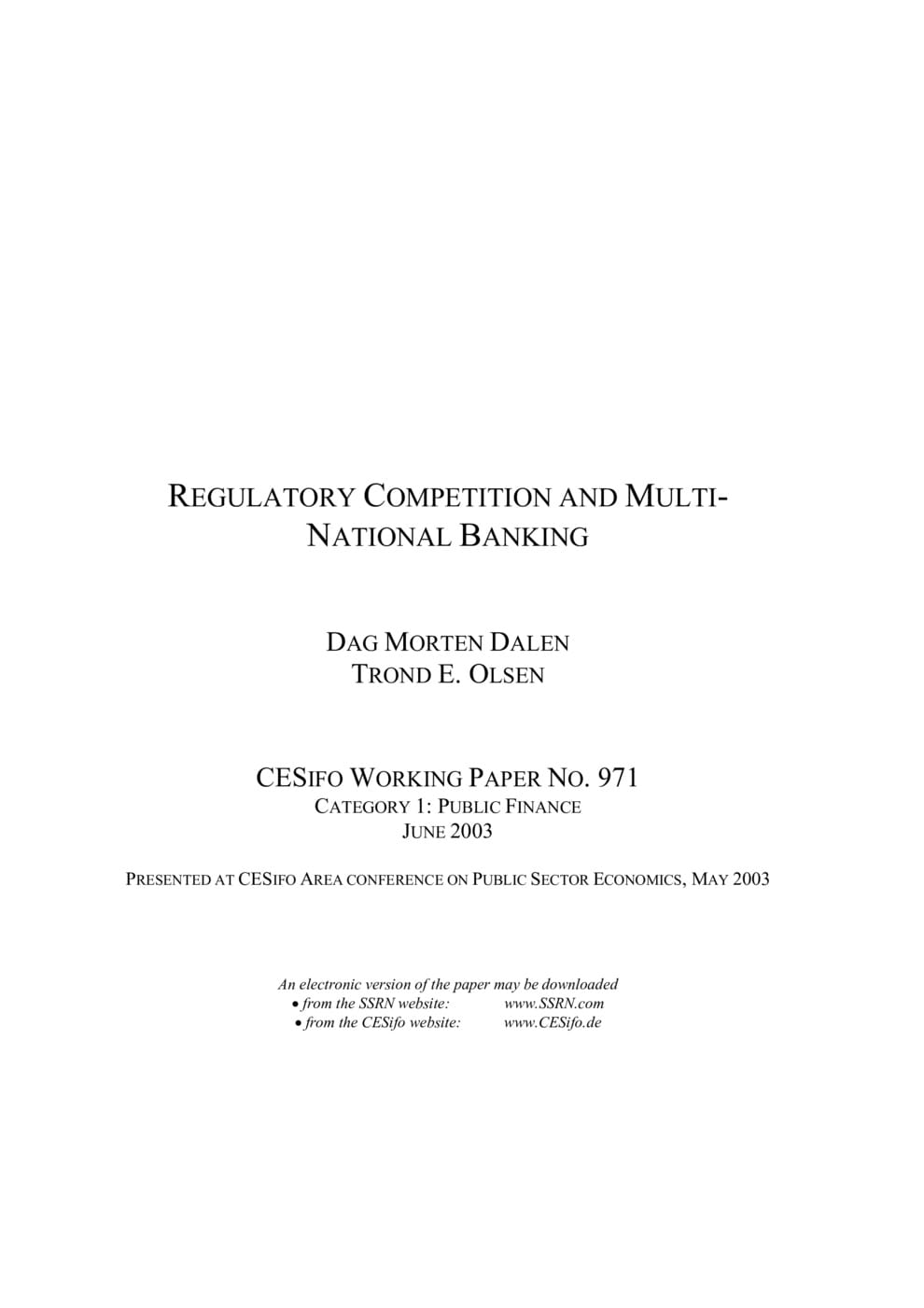Regulatory Competition and Multi-national Banking
CESifo, Munich, 2003
CESifo Working Paper No. 971

This paper focuses on the consequences of cross-border banking and entry of multi-national banks (MNBs) for banking supervision and regulation. When a MNB expands internationally with subsidiaries, the MNB operates under the legislation of several countries - both the home country and the host countries. Although these countries have agreed upon minimum standards and supervisory principles, such as in the EU directives or the Basle Accords, substantial degrees of freedom are still left to the national regulators. An important issue is whether the decentralized approach to regulation of MNBs creates inefficiencies and financial instability. We show that lack of international coordination of regulation towards MNB-subsidiaries works to lower capital adequacy requirements. In equilibrium, however, regulators respond by increasing the incentives to improve asset quality, making the probability of banking failure insensitive to the decentralized nature of banking regulation. Ownership of the MNB is shown to be of importance for the outcome of regulatory competition. Finally, considering branch-organized MNBs, we derive comparative results with respect to regulatory policy and MNBs‘ preferred form of representation.